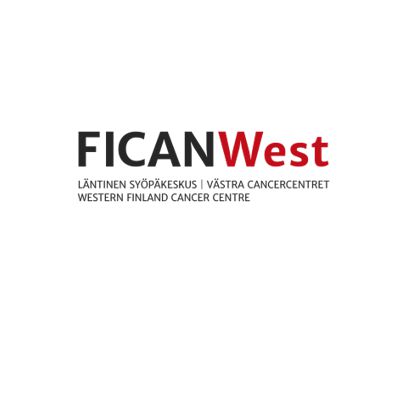FICAN West Guest Lecture, Tilley

When
Event Details
2nd October at 15:00
On-site event
in Medisiina D 8th floor, Reseptori
Professor Wayne D Tilley, Director, Dame Roma Mitchell Cancer Research Laboratories (DRMCRL), Adelaide Medical School, the University of Adelaide, Australia
Exploiting sex hormone cross-talk as an alternative endocrine therapy for ER+ breast cancers
In case you wanted to have a 1:1 researcher discussion with Wayne Tilley on Tuesday October 1st, please reply by Wed Sept 25 to mertor@utu.fi.
Professor Wayne Tilley is the Inaugural Director of the Dame Roma Mitchell Cancer Research Laboratories (DRMCRL), Adelaide Medical School, the University of Adelaide (2002-current). He was one of the first to clone the human androgen receptor and is internationally recognized for his subsequent research on the role of sex hormones (estrogens, progestogens and androgens) in hormone-dependent cancers, in particular breast and prostate cancer.
Prof Tilley received the 2016 Endocrine Society of Australia Senior Plenary Award for outstanding research in the field of endocrinology and presented the opening plenary lecture at the International Congress of Endocrinology in Beijing. In 2023 he was awarded the Rob Sutherland Translational Award by Breast Cancer Trials Australia in recognition of excellence in scientific and translational research and achievements and contributions to improved patient outcomes.
He has convened multiple conferences on sex-hormone action and hormone-dependent cancers, including the Fusion Nuclear Receptor and International Breast Cancer Society meetings, Gordon Research Conference on Hormone-Dependent Cancers, and the International PacRim Breast and Prostate Cancer meeting series.
Seminar Abstract by professor Tilley
Endocrine therapies that target the estrogen receptor (ER) are the cornerstone of treatment for ER+ breast cancer, but treatment-resistant, metastatic disease develops in ~30% of cases and causes >60% of breast cancer related deaths. These endocrine therapy-resistant breast cancers almost invariably remain dependent on ER, so research and drug development has largely remained focused on achieving more effective elimination of ER signalling, most recently via drugs that degrade ER (selective ER degraders, SERDs). Our laboratory has been investigating the stimulation of other sex hormone receptors as an alternative endocrine therapeutic strategy to treat ER+ breast cancers. Historically, treatment with androgenic (testosterone propionate, fluoxymesterone) or progestogenic (medroxy-progesterone acetate, megestrol) drugs was associated with disease regression in up to 30% of patients with advanced breast cancer in the absence of knowing the sex hormone receptor status of the tumour or a biomarker of response. Despite the clinical benefit of these alternative endocrine approaches, such therapies were discontinued with the advent of anti-estrogenic drugs in the 1980’s, in particular tamoxifen and later, aromatase inhibitors (AIs).
Using contemporary pre-clinical models, we have established that both the androgen receptor (AR) and progesterone receptor (PR) can function as tumour suppressors in ER+ breast cancer (Hickey et al, Nature Medicine 2021; Mohammed et al, Nature 2015). These preclinical studies have been validated by recent clinical studies demonstrating that agonist activation of either the AR or PR has efficacy in women with ER+ breast cancer. Selective AR modulators (SARMs) have a high specificity for binding to AR, act in a tissue-selective manner, and do not cause virilising effects in women. Enobosarm (GTx-024) is a non-steroidal SARM that durably inhibits in-vivo growth of ER+ breast cancer (Hickey et al, Nature Medicine 2021). We recently reported (Palmieri et al, Lancet Oncology 2024) that enobosarm has anti-tumour activity in patients with ER+, HER- negative advanced breast cancer, indicating that AR activation can result in clinical benefit, and supporting further clinical investigation of selective AR activation strategies. Additionally, Burrell et al (SABCS, 2023) reported the clinical activity of megestrol, a PR agonist, in early-stage ER+ breast cancer. In the latter study, megestrol enhanced the antitumor effect of an AI, and alleviated hot flashes associated with AI treatment.
Our most recent preclinical studies indicate that AR agonism is effective in the context of disease sensitive to or resistant to standard-of-care endocrine therapies, with or without inhibition of cyclin-dependent kinase (CDK) 4/6. We have also found that a viable surrogate biomarker of hormonal therapy in the breast, namely background parenchymal enhancement (BPE), can be significantly reduced by AR agonism with a female-tailored dose of testosterone, whilst having very good tolerability. This finding paves the way for a trial to test AR agonism as a primary preventative strategy for breast cancer.
In this seminar, I will discuss the above-mentioned findings and our recent work to further elucidate the mechanisms of AR and PR mediated tumour suppression in ER+ breast cancer.
Note also the FoS seminar on same day at 12:00 on a closely related topic, by Prof. Carlos L. Arteaga. https://biocityturku.fi/events-archive/frontiers-of-science-prof/
